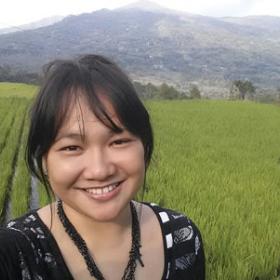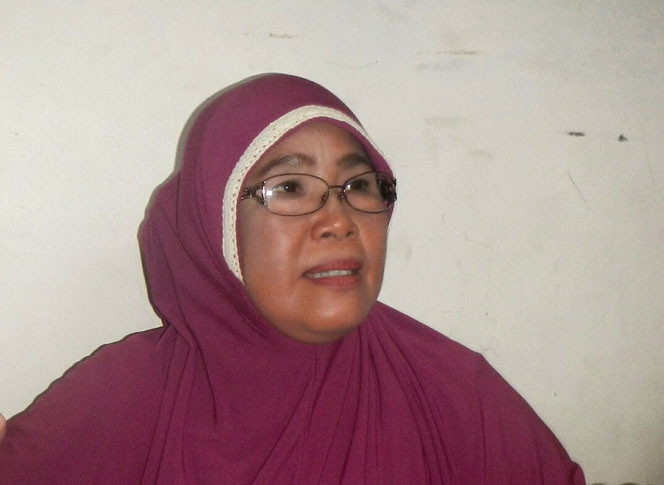On the 4th of June 2015, Noorhayati, a 54-year-old indigenous woman from the Paser tribe, was found guilty with a penalty of six months in jail and a fine of 100 million Indonesian rupiah for performing an indigenous ritual within a mining area. It was the first time in Indonesia’s history that a person performing an indigenous ritual was criminalized by virtue of the Mineral and Coal Act (Article 162) which classifies the action as obstructing the activities of the mining company. The charge filed against Noorhayati and her sentence serves as a bad precedent for the rights of indigenous peoples.
History of Land Clearings in East Kalimantan
It was in 2009 when mining company PT Kideco conducted land clearing in Songka village, District Batu Sopang in Paser, East Kalimantan. At the same time, indigenous elders and residents started to hold protests and constantly demanded a dialogue with PT Kideco to question the alleged land grab. Including Noorhayati who was the heir-owner of 598 hectares of land and in her possession is a seal letter marked in 1957 as proof of ownership. However, PT Kideco continued its mining explorations.
To resolve this issue, the indigenous peoples in the area, led by Noorhayati, conducted the Belian ceremony. The ritual aimed to resist and renounce injustice and “bad luck” in the form of land grab which damages the ecological balance.
The Belian traditional ritual began on the 16th of June 2014 and lasted for five days on the disputed land. Noorhayati was deemed by the company as “disrupting” the mining process because of the Belian ritual conducted right in the heart of the PT Kideco mining area. PT Kideco is a South Korean company, the largest coal producer in Indonesia – whose contract with the Indonesian government will end in 2022. Every year, this company extracts approximately 40 million tons of coal from Paser.
Opposing Extractive Industries and Criminalization of Indigenous Women
The Aliansi Masyarakat Adat Nusantara (AMAN or Indigenous Peoples Alliance of the Archipelago) and the Mining Advocacy Network (JATAM) Kaltim strongly protested against the criminalization of Belian traditional ritual by PT Kideco. On behalf of AMAN, Olvy Octavianita Tumbelaka provided legal assistance in defense of Noorhayati’s case and the communal or indigenous land.
“Indigenous peoples have to be economically independent based on our own wisdom. We hope that the  indigenous peoples of Indonesia feel proud of our culture and traditions. We also want indigenous peoples to be recognized and have political autonomy in Indonesia,” says Olvy Octavianita Tumbelaka, head of AMAN Women or Perempuan AMAN Kaltim (Aliansi Masyarakat Adat Nusantara – Kaltim) – one of the biggest indigenous peoples organizations in Indonesia. Olvy is also a member of the JASS-inspired youth organization Forum Aktivis Perempuan Muda-Indonesia (FAMM-Indonesia).
indigenous peoples of Indonesia feel proud of our culture and traditions. We also want indigenous peoples to be recognized and have political autonomy in Indonesia,” says Olvy Octavianita Tumbelaka, head of AMAN Women or Perempuan AMAN Kaltim (Aliansi Masyarakat Adat Nusantara – Kaltim) – one of the biggest indigenous peoples organizations in Indonesia. Olvy is also a member of the JASS-inspired youth organization Forum Aktivis Perempuan Muda-Indonesia (FAMM-Indonesia).
There were times when Olvy had to deal with groups that support the extractive industries. Though they never attacked her or became physically aggressive – they constantly “tailed” her during the time she regularly accompanied Noorhayati while on trial.
“My persistence and faithfulness to the community will protect me. Likewise, Noorhayati’s strong and wide support from the grassroots indigenous community will free her. It also strengthens her to keep up the fight,” adds Olvy.
The arrest and imprisonment of indigenous peoples who oppose mining happens not just in East Kalimantan. It occurs all over Indonesia. “Indigenous peoples are very easy to criminalize. They often do not have legal protections, or they don’t know their rights,” says Abdon Nababan, secretary-general of AMAN.
Article 31 of the UN Declaration on the Rights of Indigenous Peoples (UNRIP) states that the rights of indigenous peoples include the right to control, maintain, develop their cultural heritage, traditional knowledge, cultural expeditions, the manifestation of science and technology, as well as the right to intellectual property on assets. Based on this provision, indigenous activists maintain that what PT Kideco and the Indonesian government did – jailing an indigenous woman for performing an indigenous tradition – was a violation of this Declaration, of which Indonesia was a signatory.
Currently, Noorhayati’s case is pending in the courts. She has an ongoing appeal that is still in the process. Based on handling cases like this, Olvy estimated that Noorhayati’s case may take a long time to be processed. Activists and their collaboration with media helped a lot to elevate this local case to the national and international levels.
“There are tens of thousands of indigenous peoples in Indonesia. Our traditional culture is slowly shifting. Our local wisdom is fading away. And when indigenous peoples like Noorhayati are slapped with criminal cases for upholding indigenous traditions, we have to defend not just our traditions but also ourselves,” concludes Olvy.
About the Authors:
Niken Lestari is national coordinator of FAMM-Indonesia (or Young Indonesian Women Activists Forum), a youth organization that JASS helped create and continuously supports.
Olvy Octavianita Tumbelaka, an indigenous woman from the Dayak Benuaq tribe of East Kalimantan, is a member of FAMM-Indonesia. Olvy took part in JASS’ movement building institutes (MBIs) in 2012 and 2013 and a writeshop (writing workshop) in 2013. Olvy also represented JASS Southeast Asia in JASS’ Forum on Indigenous Women Forging a Just and Sustainable Future – an event surrounding the UN World Conference on Indigenous People (WCIP) held in September 2014.
Photo Credit: Aliansi Masyarakat Adat Nusantara


























